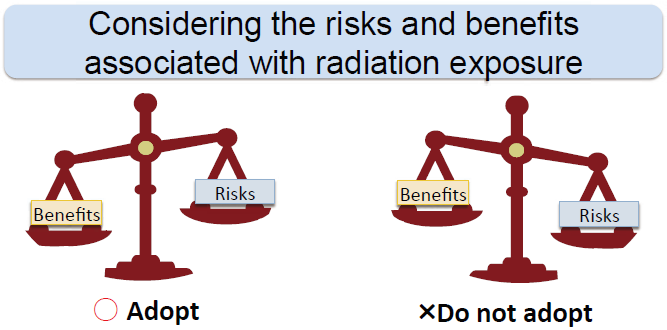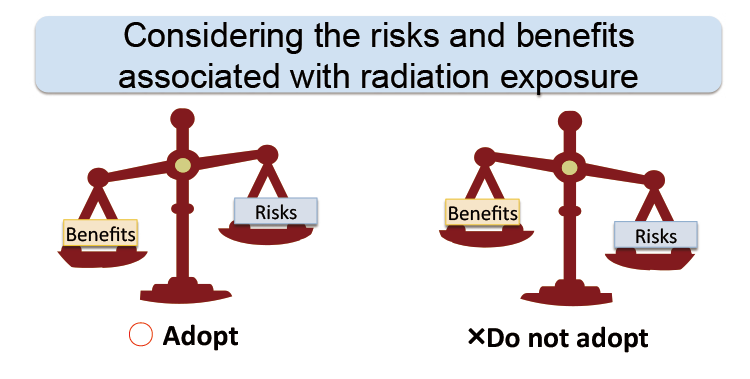(iv) Understanding risks
We learned that radiation is in our surroundings and we are exposed in our daily lives. In addition, radiation exposure occurs as a result of some medical examinations.
With all of this radiation around us, should we avoid exposure? Or should we consider the benefits of the actions which expose us to radiation together with the risks?


- Source:
- ICRP Publication 103, "The 2007 Recommendations of the International Commission on Radiological Protection"
(ICRP, 2007)
Concept of risks and benefits
Speaking strictly from the perspective of cancer risk, avoiding radiation exposure is ideal.
Although refraining from getting X-ray examinations or flying on a plane are choices you can make, this could lead to delay in identifying illness and inconvenience in your life.
In addition, these kinds of choices don’t dramatically reduce your risk of developing cancer. This is because there are various other cancer causes around us aside from radiation. For example, dietary factors and tobacco use are known to have a strong correlation to developing cancer.
Understanding risks
In daily life, the term “risk” generally means “dangerousness” or “degree of hazard.” Although it has various definitions, risk in this document is used to refer to “the combination of the magnitude of the influence of damage and the possibility (probability).” The focus must not be on “whether or not there are any risks” but on “to what extent or by how many times risks increase.”
When considering health effects of radiation, in particular, stochastic effects of radiation, it is common to use the term "risk" in the sense of "the probability (of contracting cancer or dying of cancer)."
In this case, it should be noted that "having risks" is not equal to "(surely) being subject to damage."
For more information about the word risks, see page 98 of Vol. 1, FY2022 edition.
For more information about radiation and carcinogenesis, see pages 85 and 89 in Vol. 1.


